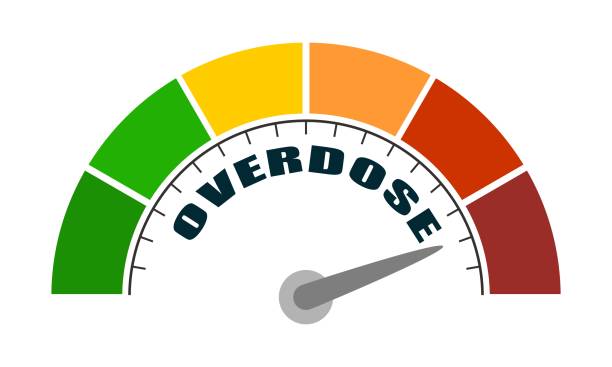Benace, Benazepril Tablets
- Introduction
- Composition of Benazepril Tablets
- Uses of Benazepril
- How Benazepril Works
- Dosage and Administration of Benazepril
- Administration Guidelines for Special Populations
- Off-Label Uses of Benazepril
- Common Side Effects of Benazepril
- Serious Side Effects and Adverse Reactions
- Drug Interactions
- Precautions and Warnings
- Benazepril Contraindications
- Overdosage of Benazepril
- Storage Instructions
Introduction
Benazepril is a player in controlling blood pressure and falls under a group of drugs called angiotensin-converting enzyme (ACE) inhibitors, which work to widen blood vessels and lower blood pressure for better heart health benefits. The significance of talking to healthcare professionals about any medication like benazepril cannot be emphasized enough. This conversation ensures that the prescription suits your health requirements and circumstances and helps prevent adverse side effects.

Composition of Benazepril Tablets
The effectiveness of benazepril tablets stems from their crafted formulation, which strikes a balance between components. The critical element is hydrochloride, which plays a role in easing the narrowing of blood vessels. It blocks the enzyme converting angiotensin I into angiotensin II, a vasoconstrictor.
- The non-active ingredients in the tablet support the medication by holding it and maintaining its quality while improving its absorption properties. These substances include microcrystalline cellulose, lactose, and magnesium stearate. They are chosen for their contributions to the medication's effectiveness, which is how well the body absorbs it.
The brand name for benazepril, commonly known as Lotensin, is high. Trusted by healthcare professionals for its outcomes. Patients interested in exploring different medication choices or comparing benazepril to other ACE inhibitors have a variety of options to consider;
- Benazepril and Enalapril are suitable for treating heart failure and high blood pressure; however, they may need to be taken at different frequencies.
- When deciding between Benazepril and Lisinopril, for treatment purposes, it's worth noting that lisinopril could be an option for individuals who need to take their medication once a day.
- Benazepril vs Quinapril: Quinapril may benefit individuals encountering the effects of Benazepril medication.
- Combining Benazepril and Amlodipine boosts the effectiveness of reducing blood pressure compared to using each one, which is advantageous for individuals with severe hypertension.
Mastering the intricacies of each medicine can result in treatment results. This highlights the importance of seeking advice from healthcare professionals to make informed decisions effectively.

Uses of Benazepril
- Managing heart failure involves lessening the strain on the heart and enhancing its performance and overall well-being.
- Reducing pressure can potentially slow down chronic kidney disease, offering some benefits for patients with issues.
Benazepril is adequate for the well-being of pets and is commonly given to dogs and cats.
- Dogs are commonly given medications to control heart failure and specific kidney issues involving protein loss through urine.
- In cats, it helps manage ailments, reinforcing their quality of life and lifespan.
How Benazepril Works
Benazepril affects the system by controlling blood pressure levels by blocking the angiotensin-converting enzyme (ACE). This action hinders the production of angiotensin II, a vasoconstrictor, leading to the widening of blood vessels.
- The impact on the renin-angiotensin system causes a decrease in the production of angiotensin II, leading to blood pressure. Decreased aldosterone secretion consequently aids in reducing fluid retention and easing the pressure on the heart.
- Reducing blood pressure and preventing fluid buildup benefit heart and kidney functions by enhancing cardiac and renal health in patients with associated conditions.
Using these methods helps benazepril not only relieve symptoms but also deal with the root causes of heart failure and high blood pressure to offer a treatment approach.
-inhibitors.jpeg)
Dosage and Administration of Benazepril
The amount of Benazepril needed depends on the illness being addressed and the patient's traits and health needs. Adhering to the recommended instructions is essential for achieving the results.
Patients should follow instructions when using Benazepril, taking the medication daily to ensure a steady level of medicine in the bloodstream. It is acceptable to take it with or without food as it aligns consistently with meals.
- Dose modifications may be needed for patients with kidney issues or reactions.
- The usual starting dose of Benazepril for adults is 10 mg taken daily. Depending on the patient's response and clinical status, maintenance doses between 20 and 40 mg may be adjusted.
- The highest recommended dosage of Benazepril is 80 mg per day to minimize the likelihood of experiencing side effects beyond this limit.
- For treating blood pressure, Benazepril medication typically starts at 10 mg to evaluate how well it is tolerated and then adjusted based on the desired blood pressure levels.
In the field of care,
- Benazepril dosage for dogs is typically determined by their weight. It usually begins at 0. 25 to 0—0.5 mg per kilogram of body weight per day.
- Benazepril dosage for cats is determined according to their weight, just as it is for dogs; adjustments are made based on the cats' response and kidney function.
The optimal time to administer Benazepril is usually in the morning; however, it can be adapted according to the individual's health status and daily routine. This guarantees that the medication's efficacy aligns with the body's peak need for blood pressure regulation.

Administration Guidelines for Special Populations
When administering Benazepril, it's important to factor in patient characteristics to guarantee safety and effectiveness. To this end, detailed protocols are personalized for each unique case.
Elderly Patients
Elderly individuals often require dosing due to their changes and higher chances of having multiple health conditions simultaneously. These patients might experience reduced kidney function, making it necessary to adjust the dosage to prevent drug buildup and the risk of toxicity.

Benazepril in Pregnant Women and Nursing Considerations
Benazepril is not recommended during pregnancy because it can pose risks to the baby in the later stages of pregnancy. It's essential to consider blood pressure medications for expectant mothers; instead, breastfeeding mothers using benazepril should be carefully assessed as an amount may be excreted in the breast milk that could potentially affect the baby.

Children
Children are prescribed benazepril based on their age, with doses and safety measures in place to ensure their well-being while taking the medication in tablet form after considering their body weight and overall health condition.

Off-Label Uses of Benazepril
Benazepril is mainly prescribed for treating blood pressure and heart failure; however, research has delved into its effectiveness for other medical conditions outside its approved uses.
- Lately, there have been research studies looking into how benazepril addresses issues such as nephropathy and prevents migraines; however, these applications have not yet received official approval.
- Non-sanctioned involves its application in treating types of long-term conditions in individuals who do not have diabetes.
Many research studies that endorse these applications frequently emphasize the flexibility of ACE inhibitors. Evaluation and discussions with healthcare professionals are required to grasp the possible advantages and drawbacks.

Common Side Effects of Benazepril
Although Benazepril successfully manages blood pressure and heart problems, it has side effects, which are generally mild and can be easily handled.

List of Frequent Minor Side Effects
- Feeling dizzy and light-headed when you stand up quickly can happen sometimes.
- Headache and tiredness might lessen over time with usage.
- Frequent coughing is commonly characterized as dry and lingering in nature.
- Digestive problems, like feeling queasy or experiencing stools.
Guidance on Managing Common Adverse Effects
One can address most of these impacts by making changes to one's habits or trying medical treatments as needed. For instance, drinking water and getting up slowly from a sitting position can help lessen feelings of lightheadedness. If a persistent cough starts to bother you, it might be wise to seek advice from a healthcare professional who could recommend a medication.
Benazepril Side Effects for Dogs and Cats
- Dogs are like people in ways. They may experience symptoms such as throwing up, diarrhea, and tiredness. Keep an eye on your friend for any swelling or trouble breathing. These signs call for urgent vet care.
- For cats, possible side effects may include a reduced appetite and weight loss, so it's essential to schedule vet visits to adjust the dosage and avoid reactions.
Long-term Side Effects of Benazepril
Extended use could result in the development of issues, like kidney problems or high potassium levels, that require consistent monitoring with blood tests for proper management.
Serious Side Effects and Adverse Reactions
There may be reactions to Benazepril that require prompt medical attention.
Identification of Major Side Effects
- Swelling in the skin layers known as angioedema can become dangerous when it impacts the airway and is often seen around the eyes and lips.
- Significant liver impairment manifests as jaundice characterized by the yellowing of the skin or eyes.
- When urine output decreases, or when there is swelling in the legs and ankles, kidney function drops.
Instructions on When to Seek Medical Help
If you experience any of the side effects mentioned above, it's important to reach out to emergency services or head to a hospital away. If you notice symptoms like swelling, breathing difficulties, or notable changes in urine output, it's crucial to seek medical attention.
Drug Interactions
Benazepril has the potential to interact with medications, which could either increase the risks involved or diminish the intended effects.

Common and Significant Interactions
- Taking nonsteroidal inflammatory drugs (NSAIDs) like ibuprofen or aspirin could potentially decrease the effectiveness of Benazepril in managing high blood pressure and also raise the chances of kidney problems occurring.
- When starting Diuretics alongside Benazepril, as prescribed by doctors, may cause a decrease in blood pressure that needs consideration.
- Taking potassium supplements or potassium-sparing diuretics may raise potassium levels in the bloodstream.
How to Avoid Potential Interaction Issues
Ensuring the management of drug interactions requires discussions with healthcare professionals and sharing a comprehensive list of all medications taken. Whether prescription drugs from the pharmacy counter or herbal supplements. Your healthcare provider is critical. Changing medication routines and dosages in alignment with the treatment objectives and individual health conditions may be necessary.
Precautions and Warnings
When using Benazepril, or any medication, for that matter, it's essential to pay attention to the precautions and warnings provided for practical usage.

General Warnings
Regular monitoring of blood pressure and kidney function is crucial when taking Benazepril since changes in these factors might happen and require treatment adjustments.
Allergies and Hypersensitivity
Individuals who have experienced angioedema in the past due to ACE inhibitor treatment should avoid taking Benazepril medication as a measure. If any signs of a reaction, like swelling of the lips or throat, are observed while using the medication or are perceived as symptoms developing quickly, seek medical assistance promptly.
Conditions Where Usage is Discouraged
- Avoid using Benazepril in individuals with artery narrowing as it may worsen kidney function.
- Expectant mothers should steer clear of this medication during the stages of pregnancy to prevent harm or potential fatality to the child.
Benazepril and Alcohol
Drinking alcohol while on Benazepril can make its blood pressure-lowering impact stronger and raise the chances of experiencing side effects such as feeling lightheaded or fainting.
Benazepril Contraindications
Some health issues can make it unsafe to take Benazepril because it could lead to reactions or problems.
Specific Health Conditions That Prohibit the Use of Benazepril
- The person has a history of swelling in the layers of the skin due, to use of ACE inhibitors.
- Severe kidney. Health issues could lead to complications, like blockage, in both renal arteries.
Rationale Behind These Contraindications
These warnings are determined by the potential for, in some cases, life-threatening reactions or the worsening of the existing condition that may result in health issues.
Overdosage of Benazepril
Taking Benazepril can result in health issues, and knowing the signs and what to do right away is very important.

Symptoms of Overdose
- Low blood pressure, known as hypotension can present itself in symptoms such, as fainting or feeling dizzy.
- Sudden surprise could result in an imbalance of electrolytes and potential kidney failure if not promptly attended to.
Immediate Actions and Treatments
If someone thinks there has been an overdose incident, it's crucial to bring them to the emergency room. The treatment might include giving them saline solution through a vein to help regulate their blood pressure and keeping a check on their signs and kidney function.
Storage Instructions
It's crucial to store Benazepril to ensure it stays effective and reduce any risks linked to mishandling it.

Optimal Storage Conditions
Remember to store Benazepril at room temperature, away from heat and moisture, and keep the bottle closed when not used.
Shelf Life and Expiration Information
Verify the expiry date on the packaging before using Benazepril, as it usually remains effective for two to three years from the manufacturing date.
Proper Storage and Disposal of Benazepril
Ensure you dispose of unused medication to prevent environmental pollution or accidental ingestion, as many pharmacies provide take-back programs for safe disposal.
Safety Measures to Avoid Accidental Exposure
Remember to store the medicine in a place for kids and pets, and if they accidentally ingest it, seek medical help immediately.
Benace, Benazepril Tablets FAQ
- Can Benazepril be cut in half
- Can Benazepril be crushed
- Does Benazepril cause hair loss
- Does Benazepril cause weight gain
- Does Benazepril lower heart rate
- How long does Benazepril stay in your system
- How does Benazepril work
- Is 40 mg of Benazepril a high dose
- Is Benazepril a controlled substance
- Is Benazepril a beta blocker
- What is Benazepril for
- What does Benazepril do
- What is the difference between Benazepril and Benazepril HCL
- What is Benazepril used for in dogs
- What does Benazepril do for dogs
- When administering Benazepril with spironolactone, the nurse should be aware that which electrolyte imbalance may occur?
Can Benazepril be cut in half
You can cut Benazepril tablets if they're not the extended-release type. Just be sure to refer to the product instructions or ask a pharmacist or healthcare professional for advice.
Can Benazepril be crushed
Sure thing! Benazepril tablets can be crushed except for the extended-release ones; it's always best to check the medication instructions or seek advice from a healthcare professional.
Does Benazepril cause hair loss
Hair loss is a rare side effect of Benazepril.
Does Benazepril cause weight gain
Benazepril is not typically linked with weight increase.
Does Benazepril lower heart rate
Benazepril usually doesn't reduce heart rate. It mainly focuses on lowering blood pressure.
How long does Benazepril stay in your system
Benazepril's half-life lasts around 10 to 11 hours, which signifies that it takes this duration for the level of the medication in the bloodstream to decrease by half its amount; on average, it requires approximately 48 to 55 hours for Benazepril to exit your body.
How does Benazepril work
Benazepril functions by blocking the angiotensin-converting enzyme (ACE), leading to the dilation of blood vessels and a reduction in blood pressure.
Is 40 mg of Benazepril a high dose
Indeed! 40 milligrams of Benazepril is usually considered a dosage within the range for dosing purposes. It is commonly recommended when lower doses prove inadequate in managing blood pressure levels.
Is Benazepril a controlled substance
Benazepril is not considered a controlled substance; it is an ACE inhibitor mainly prescribed for managing blood pressure.
Is Benazepril a beta blocker
Benazepril isn't a beta blocker; it belongs to the ACE inhibitor category, which helps relax blood vessels and lower blood pressure.
What is Benazepril for
Benazepril is a drug prescribed for managing blood pressure (hypertension). It falls under a category of medications called ACE inhibitors, which work by easing the tension in blood vessels to enhance blood circulation and decrease the strain on the heart.
What does Benazepril do
Benazepril decreases blood pressure by blocking the action of the angiotensin-converting enzyme (ACE), which in turn reduces the formation of angiotensin II—a compound that typically leads to the constriction of blood vessels, resulting in their narrowing. This mechanism aids in the relaxation and dilation of blood vessels, leading to circulation and a reduction in blood pressure levels.
What is the difference between Benazepril and Benazepril HCL
Benazepril functions as the drug ingredient, whereas Benazepril HCl (hydrochloride) serves as the salt variant utilized in medicines to improve the drug's stability and absorption rate without altering its impact; "Benazepril HCl" is merely the standard form found in prescribed medications.
What is Benazepril used for in dogs
Benazepril is often given to dogs to address heart failure and hypertension issues in them primarily; it is also a prescription, for dogs dealing with kidney disease to regulate blood pressure and lessen protein loss through the kidneys effectively and possibly stall the advancement of kidney deterioration.
What does Benazepril do for dogs
Benazepril benefits dogs by widening blood vessels to decrease blood pressure and ease the heart's burden. This is an advantage in treating heart failure and chronic kidney disease. It also enhances blood circulation to support kidney functionality and maintain heart well-being.
When administering Benazepril with spironolactone, the nurse should be aware that which electrolyte imbalance may occur?
When giving Benazepril alongside spironolactone to a patient, the nurse needs to be cautious as it can lead to hyperkalemia, which is a high potassium level in the bloodstream. Both medications have the potential to raise potassium levels. When used together, it is important to monitor the patient's potassium levels in order to avoid any complications that may arise.

















